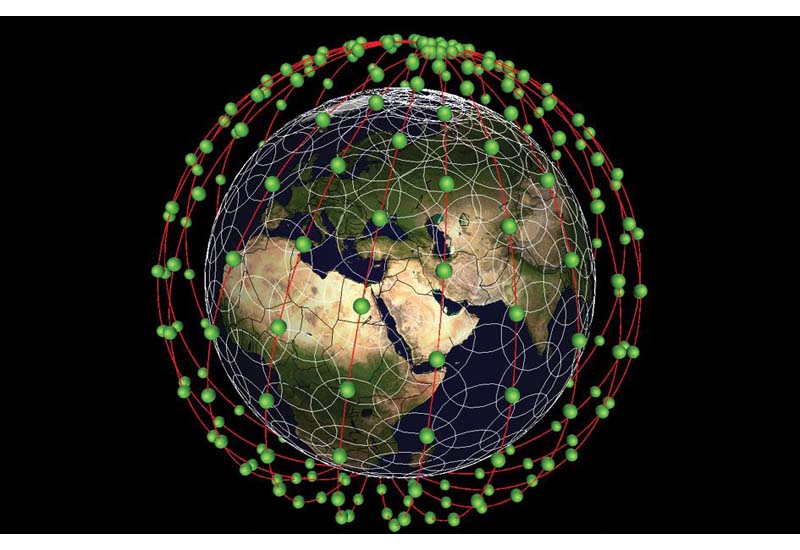Aerospace giant Boeing has aborted plans to build a satellite megaconstellation that would have rivaled SpaceX’s Starlink broadband service. The company recently withdrew an application with the FCC for a license to deploy up to 147 satellites in low Earth orbit.
Boeing originally filed for the license back in 2017 with aims of providing global satellite-based consumer broadband. But in the years since, the market landscape has dramatically shifted as SpaceX moved rapidly to deploy nearly 4,000 Starlink satellites.
SpaceX’s head start allowing it to establish an early mover advantage and begin serving over 1 million subscribers has likely made it difficult for new entrants like Boeing to compete. Elon Musk himself gloated about this on Twitter, replying that “Competing with SpaceX is tough.”
Boeing’s FCC license would have allocated spectrum in the V-band frequency range from 37.5 to 42.5 GHz for downlinks and 47.2 to 51.4 GHz for uplinks. Last year, the company launched a small test satellite to demonstrate leveraging V-band spectrum for broadband.
While Boeing is bowing out of directly providing consumer internet service for now, it still sees value in developing satellite communications technologies. The recent test mission provided valuable data that could benefit future projects.
“Our V-Band test mission provided valuable data and learning,” said a Boeing spokesperson. “For now, we are not immediately pursuing a V-Band constellation. We will continue to invest in opportunities that push what’s possible for connectivity in space.”
The company will dispose of its experimental V-band satellite through a controlled re-entry over the ocean in the coming weeks. However, Boeing indicated it may revisit satellite-based broadband if market dynamics shift in the future.
For SpaceX, the absence of a deep-pocketed competitor like Boeing is certainly a big win. SpaceX can continue rapidly expanding its Starlink constellation without a serious challenger for satellite internet dominance, at least for now.
